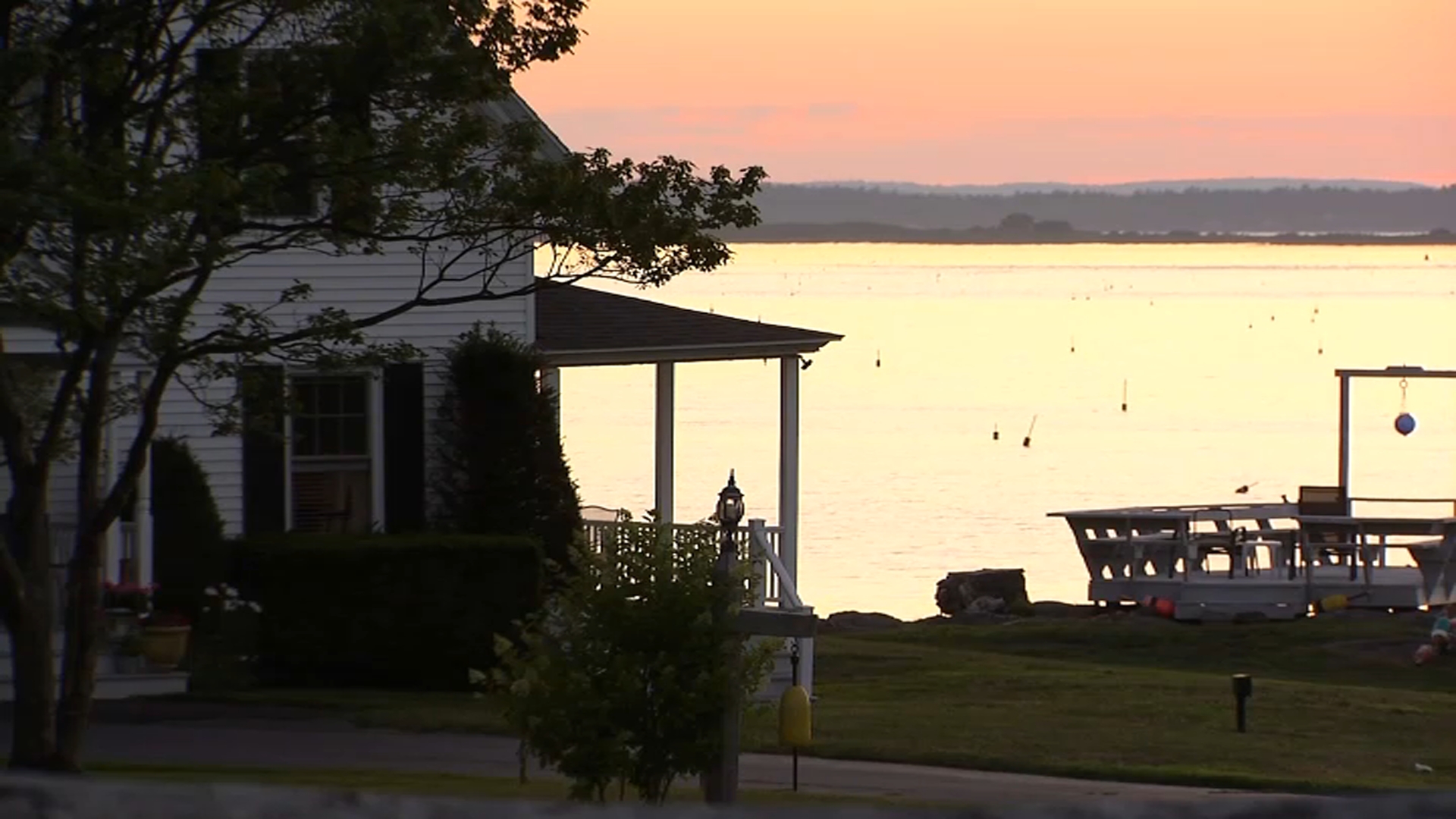A week after Maine's first-ever fatal shark attack, beach restrictions at state parks are being lifted.
From last Monday through Sunday, swimmers at Crescent Beach, Popham Beach, Ferry Beach and Reid State Parks were all limited to water up to their ankles, knees or waists, depending on the location.
On Friday, Maine Marine Patrol confirmed it found a shark near Bailey Island, where 63-year-old Julie Dimperio Hollowach was killed.
More on Maine's first deadly shark attack
But as of Monday, Maine's Department of Agriculture, Conservation and Forestry is saying that, after a weekend with no confirmed or reported shark sightings, it feels confident removing the temporary swimming rules.
"We have confidence we can return to regular water activities," said department spokesman Jim Britt, explaining there will be one caveat to the changes. "Because of a lifeguard shortage, we're going to maintain the waist-deep restriction at Reid State Park."
Worries about safety are waning somewhat for parents, as well.
"If they feel it's safe enough to lift the restriction, I feel safe enough to come to the beach," said Katie Ardito, a Cape Elizabeth mother at Crescent Beach on Monday.
The week prior, parents in nearby Yarmouth said they were worried about keeping kids away from the water and were struggling to decide how much to tell kids about what happened.
For those parents, Rebecca Hoffmann-Frances, the director of clinical innovation at Maine Behavioral Healthcare, recommends approaching the subject by finding out how much a child knows about the shark attack and learning as much as possible about shark attacks.
"Information is the antidote for fear and lack of control," said Hoffmann-Frances, who explained she is not surprised to hear that parents were dealing with these types of situations and some frightened children.
If a young child is now scared of the water, she recommended a parent try "modeling" behavior for their child and going in a body of water to show the child it's safe.
Hoffmann-Frances also recommended having the child imagine their "worry" is physical and said parents could then encourage their children to hand the worry to them to provide a sense of relief.
"They can say, 'Can I hold that worry for you?' and have their child sort of put it in their hand and say, 'OK, I'm going to hold onto that worry for you.'"
The plan going forward, at least at Maine state parks, is for staff to work with Maine Marine Patrol to keep an eye on the sharks and consider rule changes around those sightings as needed.



